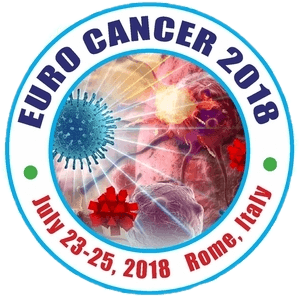
Kang-Yell Choi
Yonsei University, South Korea
Title: Degradation of both β-catenin and RAS via targeting the Wnt/β-catenin pathway is an ideal approach for colorectal cancer treatment
Biography
Biography: Kang-Yell Choi
Abstract
Interaction between the Wnt/beta-catenin and the Ras-ERK pathways, two major transforming pathways, have been posited. However, molecular mechanisms and cooperative roles of these two pathways are poorly understood. Both APC and KRAS mutations synergistically promote cellular transformation and tumor growth, attributed to activation of the RAS-ERK pathway via activation of the Wnt/ β-catenin signaling. One key event in this crosstalk is the stabilization of RAS, especially mutant KRAS, by APC loss. Stabilization of both β-catenin and RAS plays a critical role in the synergistic transformation, and both β-catenin and RAS levels are highly increased in CRC patient tissues. Epidermal growth factor receptor (EGFR), a direct transcriptional target of the Wnt/β-catenin signaling pathway, is also overexpressed in human CRC, and plays a role in the synergistic tumorigenesis. Therefore, inhibition of both the Wnt/β-catenin and EGFR-RAS-ERK pathways, especially by reducing levels of the proteins elevated in CRC, could be an ideal approach for the treatment of human CRC. This concept for an ideal therapeutic approach has been proved by small molecules destabilizing both β-catenin and RAS by activation of GSK3β via targeting the Wnt/β-catenin pathway. GSK3β activated by the small molecules induce phosphorylation and subsequent polyubiquitin-dependent proteasomal degradations of both β-catenin and Ras and subsequent transcriptional suppression of EGFR overcome current limitation of the insensitiveness of the EGFR targeting therapies such as cetuximab attributed by a K-Ras mutation of patients. Moreover, these small molecules effectively suppress activaiton of cancer stem cell activated through aberrancies of the Wnt/ β-catenin and Ras-ERK pathways.

